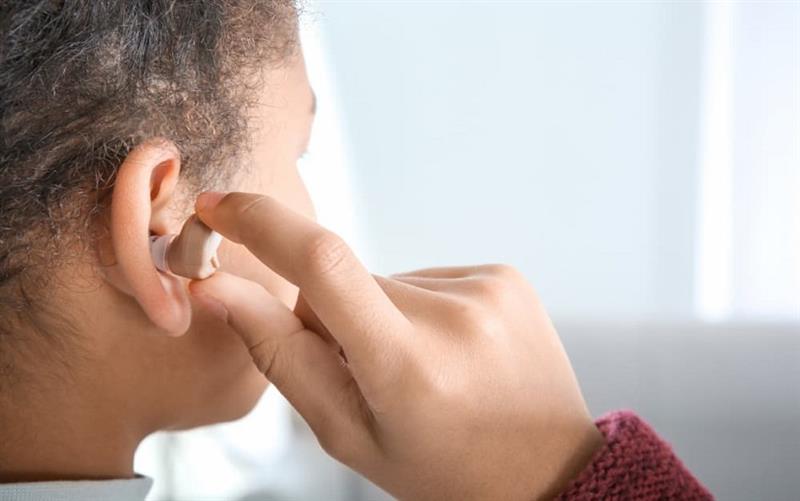
Choosing the right hearing aid is a personal journey that involves considering your specific hearing needs, lifestyle, and preferences. By understanding the different types of hearing aids and the key features to look for, you can make an informed decision that enhances your hearing experience. Remember to work closely with a hearing care professional to find the perfect match for your needs. With the right hearing aid, you can reconnect with the world and enjoy a richer, more vibrant auditory experience.
Choosing the best hearing aids involves a careful evaluation of your specific hearing needs, lifestyle, and personal preferences. Here are some comprehensive steps to help you make an informed decision:
1. Get a Professional Hearing Assessment
Before considering any hearing aid options, schedule an appointment with an audiologist or hearing care professional. They will:
- Conduct a thorough hearing evaluation to determine the degree and type of hearing loss.
- Discuss your lifestyle and specific hearing challenges.
- Recommend suitable hearing aid options based on your hearing profile.
2. Understand the Types of Hearing Aids
Familiarize yourself with the various types of hearing aids, each designed for different levels of hearing loss and user preferences.
Behind-the-Ear (BTE)
- Suitability: All ages, mild to profound hearing loss.
- Pros: Durable, powerful, easy to handle, larger battery life, and advanced features.
- Cons: More visible, potential for wind noise.
In-the-Ear (ITE)
- Suitability: Mild to severe hearing loss.
- Pros: More discreet than BTE, can include extra features like volume control.
- Cons: Susceptible to earwax and moisture, less powerful than BTE.
In-the-Canal (ITC) and Completely-in-the-Canal (CIC)
- Suitability: Mild to moderate hearing loss.
- Pros: Very discreet, less wind noise.
- Cons: Shorter battery life, fewer features, and can be difficult to handle.
3. Consider Key Features
Identify the features that are most important to you. Here are some to consider:
Look for hearing aids that provide clear and natural sound. Digital hearing aids with advanced processing capabilities can adapt to different listening environments, enhancing overall sound quality.
Modern hearing aids often come with Bluetooth connectivity, allowing you to connect to smartphones, TVs, and other devices. This feature can be especially useful for phone calls, music streaming, and using assistive listening apps.
Consider your preference between rechargeable batteries and disposable ones. Rechargeable hearing aids are convenient and environmentally friendly, while disposable batteries can be easily replaced on the go.
The fit and comfort of a hearing aid are crucial for prolonged use. Make sure the hearing aid is comfortable to wear throughout the day and does not cause any irritation or discomfort.
-
Noise Reduction and Feedback Cancellation
Advanced hearing aids come with noise reduction and feedback cancellation features, which help minimize background noise and eliminate whistling sounds, providing a more pleasant listening experience.
A telecoil (or T-coil) allows hearing aids to connect directly to loop systems found in many public places, such as theaters and churches. This feature can significantly enhance your hearing experience in such environments.
4. Evaluate Your Lifestyle Needs
Your daily activities and environments will influence your hearing aid choice. For instance:
- Active Lifestyle: Choose durable, sweat-resistant models with good noise reduction.
- Tech-Savvy Users: Opt for models with advanced connectivity features.
- Quiet Environments: Basic models with fewer features may suffice.
5. Check for Compatibility with Assistive Listening Devices
If you use or plan to use assistive listening devices (ALDs), ensure your hearing aids are compatible. This is particularly important for activities like watching TV, attending lectures, or participating in large gatherings. When selecting a hearing aid, it's important to consider its compatibility with assistive listening devices (ALDs). These devices can significantly enhance your hearing experience in various settings, such as public places, social gatherings, and personal media consumption.
6. Budget Considerations
Hearing aids range in price from a few hundred to several thousand dollars. Determine your budget and explore options within that range. Keep in mind that higher-priced models often offer more advanced features. Hearing aids can range from a few hundred to several thousand dollars per device. The cost typically depends on the technology, features, brand, and level of customization.
7. Review the Warranty and Trial Period
When investing in hearing aids, it's essential to review the warranty and trial period offered by the manufacturer or retailer. These aspects provide security and flexibility, ensuring you get the best value and satisfaction from your purchase.
- Trial Period: Make sure the hearing aid comes with a trial period to test its performance in different environments.
- Warranty: Look for a comprehensive warranty that covers repairs and maintenance.
8. Seek Reviews and Recommendations
Gathering reviews and recommendations is a critical step in choosing the best hearing aid. It provides insights into real-world performance and user satisfaction, helping you make a more informed decision
- User Reviews: Read reviews from other users to understand their experiences.
- Professional Recommendations: Rely on your audiologist’s expertise and suggestions.
9. Schedule Follow-Up Appointments
After selecting a hearing aid, schedule follow-up appointments with your audiologist to:
- Fine-tune the hearing aid settings.
- Address any comfort or functionality issues.
- Ensure optimal performance.
It's ideal to keep yourself as educated with your hearing aids and a new breakthrough in the technology. Ask your query via Book an Appointment today. For more information visit https://hearing.careinc.ca or you can call us today at (403)605-6300